Pride Cymru: 'How a homophobic attack drove me to join police'
- Published
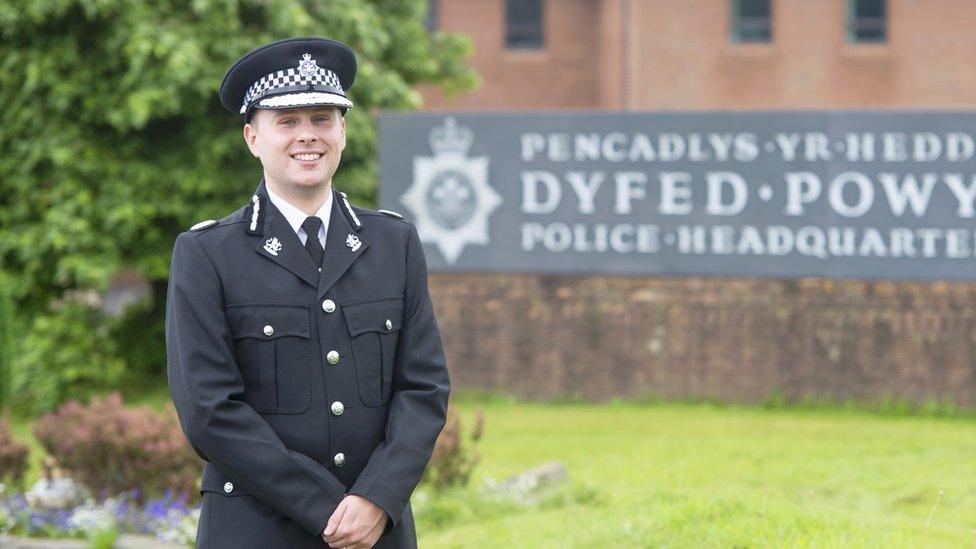
Cairn Newton-Evans, now chief officer of the special constables at Dyfed-Powys Police, was attacked 11 years ago
A man beaten so badly he needed surgery in a homophobic attack a decade ago says it was the spur for him joining the police.
Cairn Newton-Evans, 28, was punched repeatedly, had his head slammed into tarmac and received death threats.
After witnesses and officers did little to help him, he joined Dyfed-Powys Police to change attitudes and said he was now friends with his attacker.
He is in Cardiff for the National LGBT Police Conference, external and Pride Cymru, external.
Mr Newton-Evans said he believed homophobic attacks were not taken seriously enough by Dyfed-Powys Police when he was attacked in 2008, despite Home Office guidance.
While he has seen a huge improvement since joining the force, he still thinks more needs to be done.
"He grabbed me by the scruff of the neck, punching me repeatedly, screaming horrific things at me," Mr Newtown-Evans said of the attack in November 2008.
"There was a death threat, there were homophobic remarks made," he told Oliver Hides on BBC Radio Wales.
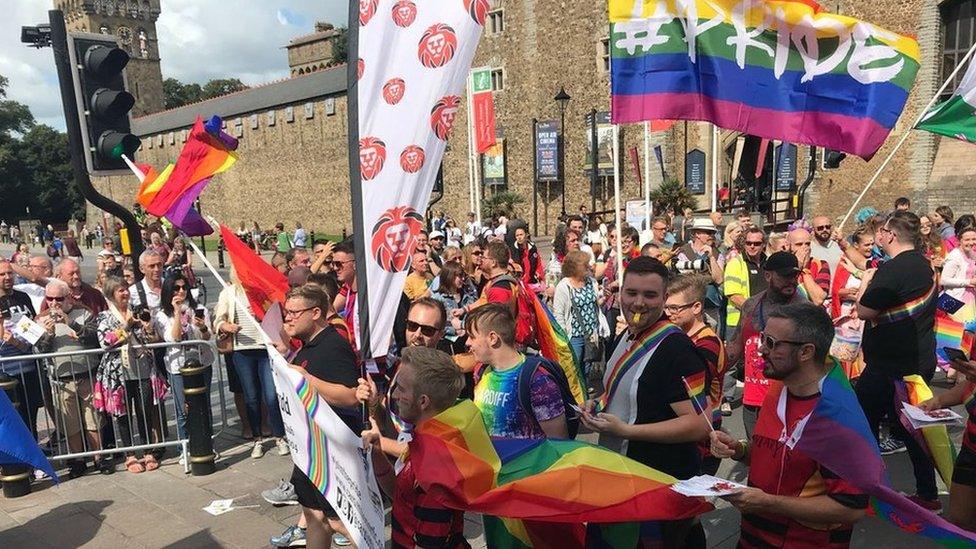
About 50,000 people are expected in Cardiff for Pride Cymru this weekend - with Saturday's parade set to fill the city centre with colour
It happened in his hometown of Ammanford after someone he knew from school started following him over a railway crossing.
Mr Newton-Evans added: "He punched me so many times and slammed my head into tarmac, my nose fractured and my cheekbone was displaced."
The attack left him needing surgery to reset his nose.
He described four people watching it and making no attempt to intervene or call the police.
And when he said officers only gave the attacker a "slap on the wrist" and caution, Mr Newtown-Evans said he was scared to leave his house, believing he would be attacked again.
He called the response "below par" and said an LGBT officer from his local station supported him and convinced him to try to "change things from within".
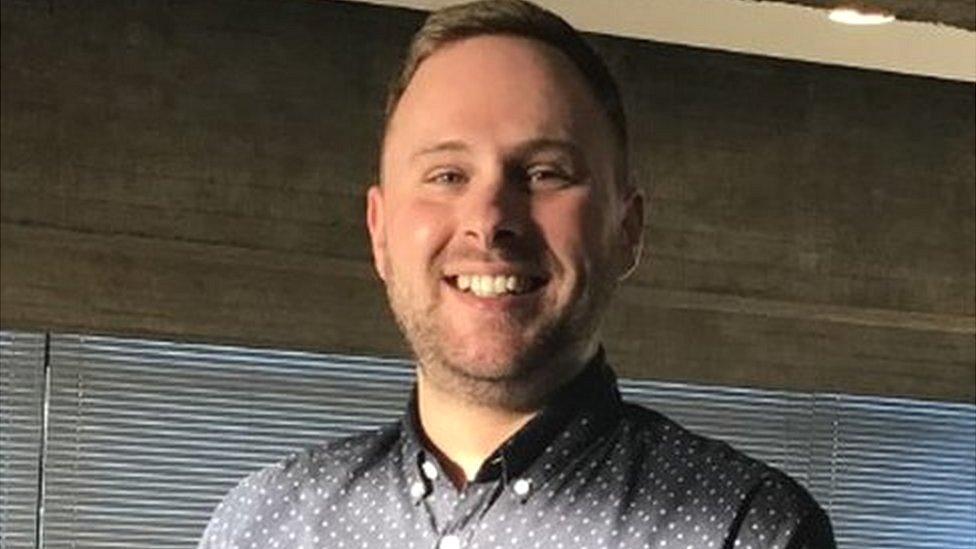
Mr Newton-Evans was awarded a British Empire Medal for his services to the LGBT community and policing
Mr Newton-Evans joined Dyfed-Powys Police in 2009 and is now the chief officer of the special constable.
He pointed to Stonewall figures in 2017 about a rise in homophobic incidents as a possible positive as they suggested more people were reporting crimes.
However, the same figures also suggested young people did not feel safe enough to "be themselves".
"We need to rectify that," he said.
"Fifty years ago, homosexuality was illegal and the police would go into LGBT venues and arrest them, criminalise them for loving someone.
"There are still people alive who have been through that so you could understand if older people didn't have confidence, but it's younger people who are less likely to report incidents.
"So we need to do far more to engage with these people and prove we are here to help."
Attacker's apology
He described how he is now friends with his attacker, who also works for the emergency services.
"I bumped into him in 2012, when we both went to the same incident," Mr Newton-Evans said.
"He came and apologised. What happened gave both of us the kick up the backside to achieve something.
"He knows he is so lucky he has the life he has now - it turned a negative into a positive."
- Published7 September 2017
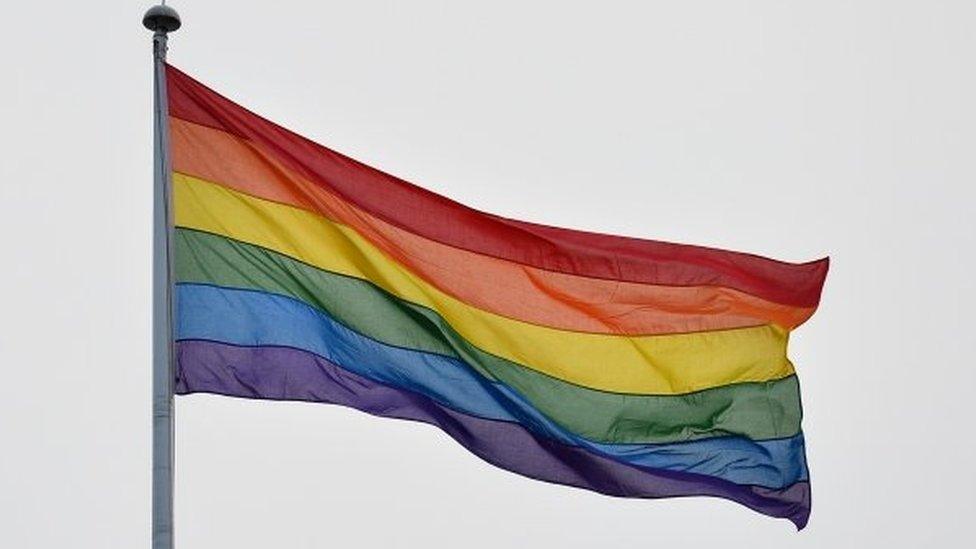
- Published15 August 2019
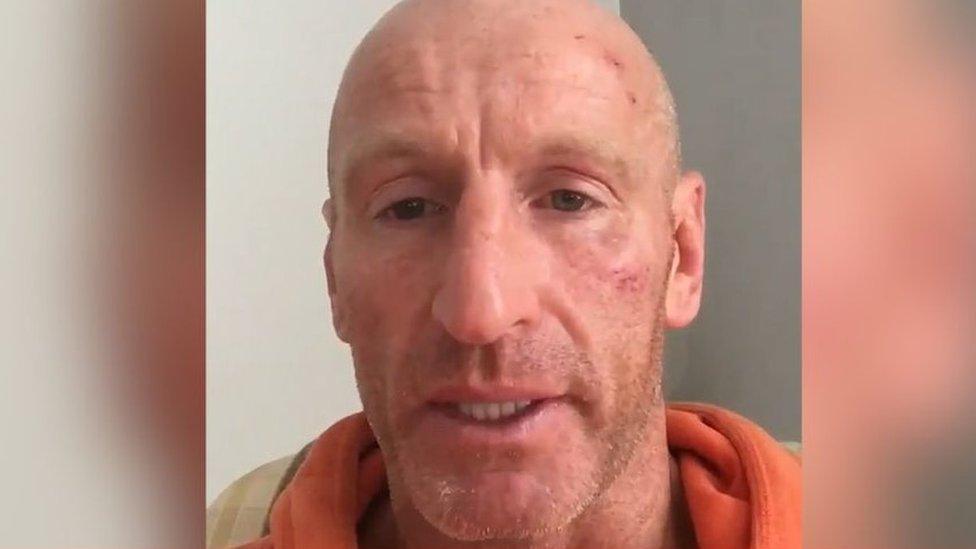
- Published28 December 2018
